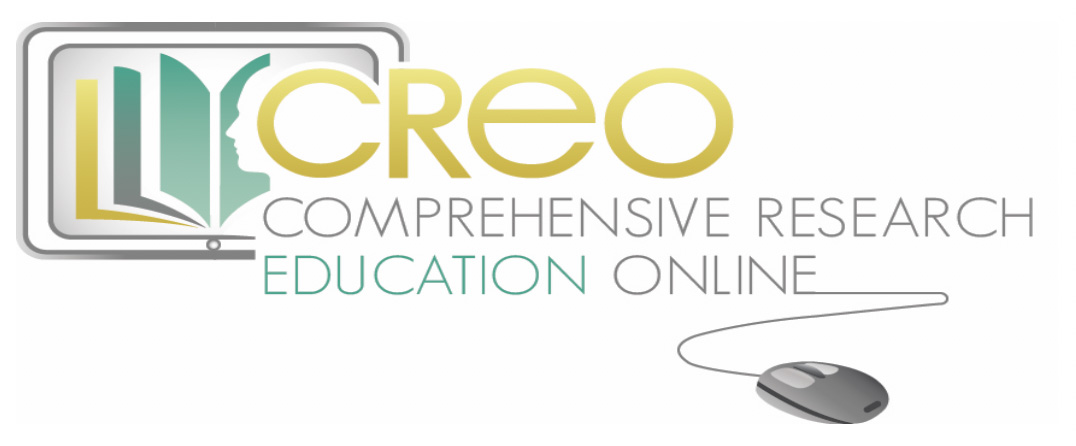Resources
creo™
creo™ is an online learning tool that delivers research education in a straight forward and easy-to-digest way, guiding the learner through the step-wise process of developing a research project. More information can be found in the creo Information Booklet or by contacting medicinefaculty.development@usask.ca
The Gwenna Moss Centre
Office of the Vice-Dean Research (ODVR), College of Medicine, USask
OVDR has created this excellent handout which contains grant development information, departmental contact list, funding opportunities, and an overview of the grant submission process.
Resources for Clinical Researchers
Research metrics measure the impact of scholarly works. Various metrics have been developed to track the impact of individual articles, authors, and journals. The Research Metrics guide will introduce you to many of these measures and how to apply them to your work.
Med Ed Research Grants
Faculty Development has compiled two medical education research resources for you which were originally done for the Medical Education Research and Scholarship Day. You can refer to both these documents – information on medical education grants available and the journals you can consider to submit your papers for publication. If you have suggestions on additions to these documents – please contact medicinefaculty.development@usask.ca. We want these documents to be ever-greened - keeping them up-to-date and relevant and appreciate your input.
Funding Sources for Medical Education Research
Library Support
The University Library collaborates with researchers through our Liaison Librarian Program, by providing information resources and research tools and facilitating scholarly communication. Visit our Medical Education Resources page to view more information on the USask library.
IT supports for Research
Other Resources
AAMC Medical Education Scholarship Research and Evaluation (MESRE) website. Also checkout their video 'What is MESRE?'
RIME (Research in Medical Education ) information is available through AMEE https://www.mededworld.org/Conferences/Conference-Items/RIME-2019.aspx
The Learning Scientists: Different Research Methods: Strengths & Weaknesses
The Learning Scientsts: A Statstics Primer for the Overwhelmed Educator
Knowledge Translation Canada: Offers an introductory online course on Systematic Review and meta-analyses; more information. Check out their other education and training opportunities here.
PowerPoint on the qualities of visual abstracts and how to create one for your research: http://www.meeting-support.com/downloads/687280/25331/Visual-Abstract-101-AAMC_05212020_font-updated.pdf
Jane (Journal/Author Name Estimator) - JANE is a free online bibliographic journal selection tool, which is a popular resource to help authors determine the most appropriate in-scope journal to publish their manuscripts.
Faculty Development Library
Check out the hard copies of resources we have in Faculty Development easily! We have a FD “Library“ now which you can scan online to see if we have titles of books or medical education articles you might be interested in. These are available to be borrowed by contacting medicinefaculty.development@usask.ca.
We are happy for these resources to be used by individuals in the College of Medicine or other Health Professions, anyone participating in our FD programming, as well as to have them go out to distributed teaching sites in SK. Go to https://cmfdlibrary.librarika.com/. If there are great titles related to medical education that you think we should have, let us know. We welcome your suggestions.
Program Offerings
Columbia | Mailman School of Public Health - SHARP Training Skills for Health and Research Professionals. Short, intensive boot camps led by field experts to teach in-demand research skills and methods to investigators at all career levels and from any organization. Here is the official flyer with all 2021 topics to share with colleagues.
AAMC - Medical Education Research Certificate (MERC) Workshops. This virtual workshop is open to all who are interested in improving their educational research skills and is targeted for those with a background in medical education but relatively less experience in conducting educational research. The courses are targeted for clinicians and other educators who desire to learn research skills that will enable collaborative participation in medical education research projects.
First Nationas Information Governance Centre (FNIGC) - The Fundamentals of OCAP. A self guided online training course designed to introduce the fundamental concepts of OCAP.
‘Writing in the Sciences’ course – offered by Stanford. This course teaches scientists to become more effective writers, using practical examples and exercises. Topics include: principles of good writing, tricks for writing faster and with less anxiety, the format of a scientific manuscript, peer review, grant writing, ethical issues in scientific publication, and writing for general audiences.
Track Your Thinking

Thinking about your thinking – click here to download and use this template to record “process notes” to reflect on what you want to use or take away from this page. This can be similar to writing a progress note on patient care. Download this pdf and keep it as a record. Write out your comments on what you are learning and come back to this from time to time to see how your thoughts and feelings are changing. Review what you have written and re-comment on how you are applying what you are learning to your day to day practice.



